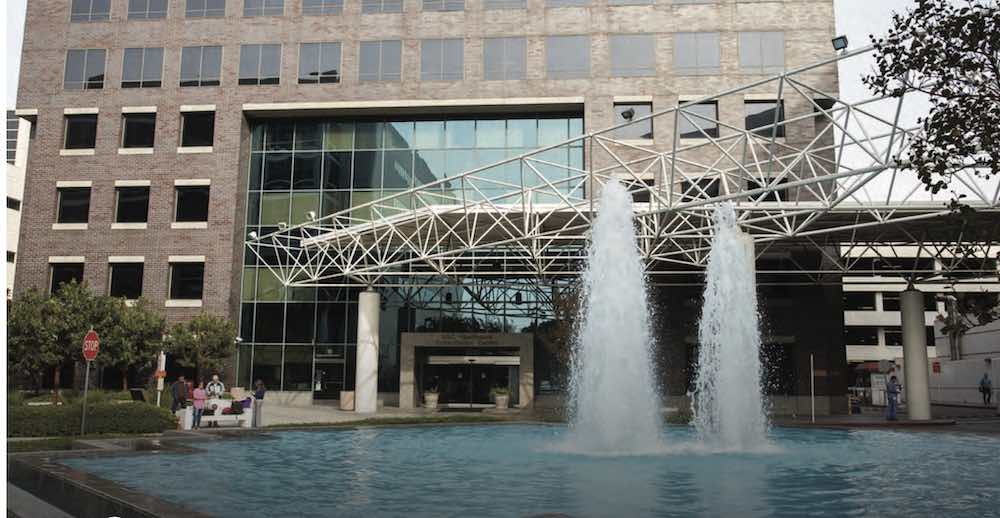Welcome to the USC Institute of Translational Genomics
Our institute works to make healthcare smarter because future improvements in personalized medicine will benefit and ultimately serve a diverse group of people. Advancing precision medicine to affect diverse populations requires diversity in leadership. Our members and scientists span diverse backgrounds and experiences. We are committed to combining the best genome science with clinical care to improve people's lives. Members come from within the Department of Translational Genomics and other departments and affiliates.
Vision and Direction
Where our team strives to make healthcare smarter, based on a vision that future advances in personalized medicine will build from, benefit, and ultimately serve an incredibly diverse set of individuals.
Medicine is undergoing one of its most significant transitions in recent history. For the first time, we can treat patients based not on what works best for the average person in the population but on what will work best for each patient.
Genomic discoveries that have changed the game have made personalized medicine, also called "precision medicine," possible. Our deep understanding of DNA and how it varies from person to person is powering a new golden age of diagnostics, treatment, and predictive and preventive medicine. In areas like cancer and rare diseases, however, it is just the beginning as we use high-throughput technology to combine information at the molecular and systems levels to improve patient outcomes.
Focus On The Value of Diversity, Data Science, and Genomics
We started USC Translational Genomics to help advance precision medicine. It is a home for scientists and doctors who want to change how healthcare is done by putting precision medicine into practice and making it better for everyone. We believe that precision medicine doesn’t build or benefit from focusing on one population but instead requires studies involving diverse people. In many ways, the diversity of Los Angeles is like the future diversity of healthcare in the U.S., which will show its challenges and opportunities.
At the USC Keck School of Medicine, which has cutting-edge scientific facilities, our well-known team of researchers and doctors works together to make genome-based medicine live up to its full potential.
For precision medicine to live up to its promise, we need to know how molecular and genetic differences vary from person to person. We believe that precision medicine doesn’t build or benefit from focusing on one population but instead requires studies involving diverse populations.
In many ways, the diversity of Los Angeles is like the future diversity of healthcare in the U.S., which will show its challenges and opportunities. We launched USC Translational Genomics as a catalyst for precision medicine—a home for scientific and medical experts dedicated to challenging the status quo in healthcare by implementing and advancing precision medicine across all populations.
With a foundation of cutting-edge scientific facilities at the USC Keck School of Medicine, our renowned team of researchers and physicians is collaborating to realize the potential of genome-based medicine with the understanding that these advances will serve the diverse clinical populations that will make up the future of healthcare.
What is translational genomics?
ge•no•mics
noun. the branch of molecular biology concerned with the structure, function, evolution, and mapping of genomes.
pre•ci•sion med•i•cine
noun. an emerging approach for disease treatment and prevention that takes into account individual variability in genes, environment, and lifestyle to tailor care for each person.
Building A New Vision at USC


USC Translational Genomics was founded in January 2016 under the leadership of John Carpten, Ph.D., and David W. Craig, Ph.D., who both came to Keck School of Medicine from TGen in Arizona.
USC Translational Genomics includes a truly transdisciplinary team of biologists, geneticists, and data scientists working hand in hand with engineers, chemists, and clinicians across USC departments, campuses, and hospitals.
Together, we work in the lab and behind the computer to advance our understanding of a range of diseases and disorders — from neurological diseases and rare genetic syndromes to adult and pediatric cancers — and in the clinic to produce practical applications. We are also committed to understanding why certain diseases and disorders are more prevalent among different populations.
In addition to our research and clinical efforts, USC Translational Genomics began to offer degree programs in innovative areas of biomedical research in 2017. We are dedicated to training the field’s next generation of leaders in genomics, biotechnology, and biomedical informatics.
